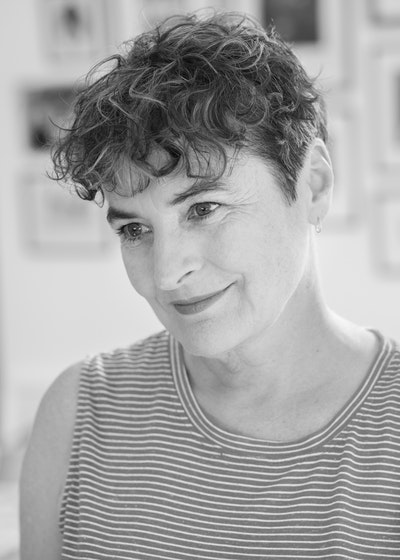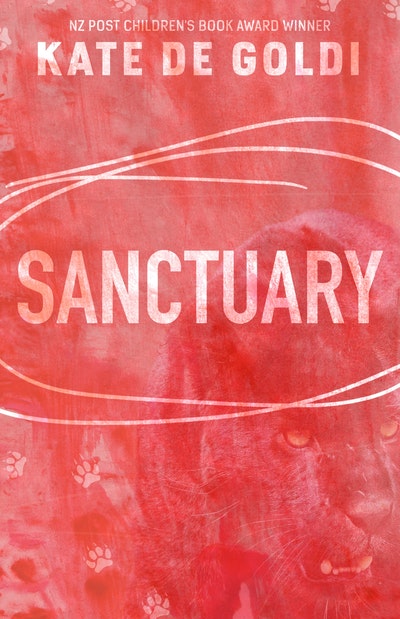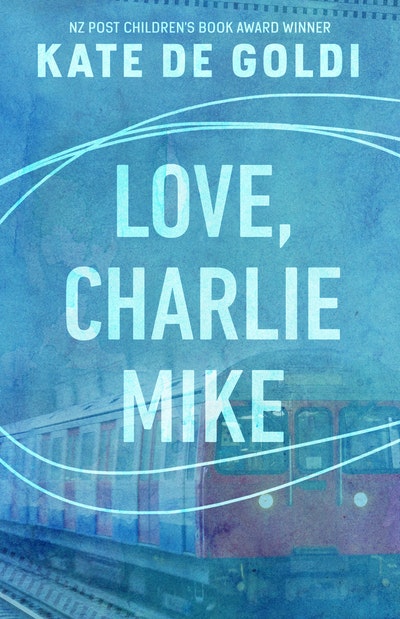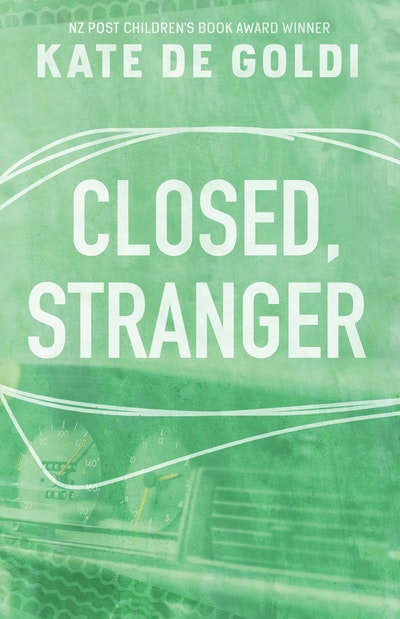Read the story being discussed on Jesse Mulligan’s show on Radio New Zealand on 22 March 2018
Devotions.
In the past Reen has sat watching her grandmother peel apples. Reen and her sisters eat the quartered apples, but it is the skins which interest them. Reen’s grandmother has held the apples firmly, peeling carefully, making sure the length of peel stays unbroken. She hands the skins to her three granddaughters and they bounce the spirals gently on the kitchen table, waiting while Nana prepares her own.
‘Uno, due, tre!’ Nana says, and all together they take the peels in their left hands and fling them over their right shoulders, turning quickly to see what shapes they have made on the floor.
‘An S,’ Reen says doubtfully, pushing the top part of her peel up a little, prodding another part sideways.
‘Stephen, Simon, Sean, Samuel, Sebastian . . .’
Pip has a definite C, EmEm a W.
‘William, Winston, Walter,’ she says, disgusted.
Nana has a G.
‘Always a G,’ she says with satisfaction, and it always is, this time a small g, a circle with a looping tail. She tells them the old story again, how she stood at the bench in Tresenda and threw the peel three times and each time got a G.
‘Incredible,’ says Rose, though she has heard the story before.
‘Just as well, too,’ she laughs, patting Poppa’s hand.
‘I can only think of Christopher or Colin,’ says Pip.
‘Wayne,’ says EmEm.
Reen’s are always different, last time it was a P, an F before that.
‘Charles,’ says Pip.
‘Plenty time, plenty time,’ says Nana, slicing the apples some more, filling her mouth with quick bites and chewing noisily while she pares cheese. She likes food.
Reen picks up her skin and throws it again, but there is no definite shape this time. She throws a third time. She would like a portent, she would like the comfort of predestiny; she wants in the future to tell a story just like her grandmother’s.
Years later, lying beside her lover of three months in his narrow bed, Reen thinks sleepily about the old apple game. She tries to remember if she ever got a K.
‘Are you asleep?’ she whispers, nuzzling into Kim’s neck. He murmurs and moves heavily, gathering her up. It is a warm afternoon and a sunny room and they lie under a single sheet. Reen tells Kim about the apple game.
‘But I don’t think I ever got a K,’ she says.
‘Doesn’t matter, Linda approves,’ Kim says, kissing along her jawline, right up to her earlobe, licking her ear. ‘Water and air, couldn’t be better.’
He is joking, she knows, but actually, in the flush of their early passion they have read Linda Goodman’s Love Signs together, childishly pleased with Linda’s predictions for them. Naturally they don’t believe in astrology, but somehow their own private discovery has been officially confirmed.
But, if not the stars, then what, who?
Reen’s cousin Barney arranged their first meeting, but secretly Reen thinks of a divine hand as having guided them towards each other.
‘It was a blind date,’ she enjoys telling people.
I was blind, she thinks to herself, smiling, and my eyes were opened. They drank brandy and later that same evening went to bed together, so discovering each other at first mostly by touch and smell.
Since then Reen and Kim have slept together every night, at Kim’s place because his flatmate is a nightwatchman and this leaves them to themselves. They cook dinner, eating large helpings (Reen has found that falling in love this time has vastly increased her appetite); after dinner they sit outside reading and talking, watching the cars and foot traffic down Durham Street; they call hello and wave to people passing, feeling generous with the world, certain they are lucky.
Before she was Nana, Reen’s grandmother was Caterina Giumelli, sailing away from Italy on a converted German warship with a small blue suitcase; inside: two dresses, a coat, a pair of rosary beads, photographs of her family and four letters from Guiseppe Mondini, written painstakingly from a small flatcutter’s hut in Te Puke, New Zealand.
The pitching of the ship upset Caterina’s tummy, but she had a steely disposition and walked the deck determinedly in all weathers. She was small, dark-browed, with blue, sloe-shaped eyes, these eyes fastened always on the horizon, waiting for a place, Melbourne – Meel-boron, she turned it over on her unpractised tongue.
‘Poppa was waiting at Melbourne,’ Rose has told her girls; she has the story from her mother-in-law, bit by bit over the years.
‘She tapped him on the shoulder and said, “You are Guiseppe,” and he gave her some flowers and they went straight to the Cathedral and got married.’
‘You are Guiseppe?’ Caterina said, on the wharf at Melbourne, tapping the stocky man on the shoulder.
‘He was looking the other way,’ Rose said.
‘Tanti auguri della tua famiglia. E una benedizione della tua madre.’
On the wharf at Melbourne, Caterina held Livingstone daisies and studied her cousin. He was thirty-three years, with a high brow and black hair and a full curling moustache. He took her gaze and looked right back, appraising her also. Like Caterina he tried to connect what was before him with the elusive, shifting picture in his memory.
They had met only once, eleven years before.
After work, sometimes, Reen visits her grandparents, separated now, living their slowed-down lives in different hospitals. It is sad, Reen thinks, that Nana and Poppa must live apart, their infirmities sealing, finally, their separation, where once their sturdy energetic bodies brought them together.
Poppa worked hard, physically hard, Tommy has said, briefly, shaking his head at the thought, though he is no slug himself. Reen knows that Poppa cut flax and laid railroad tracks; she thinks of him as going at the flax with his bare hands, or laying the entire West Coast line alone, hefting sleepers and iron rails, moving in the more recent past with buckets of coal for the range, head bent, his short solid legs working slowly.
And as for Mama, said Tommy, she worked hard too. And yes, Reen knows that, she has seen Nan’s face red from the eternal stoking of the range, red with the effort of lifting wet clothes from the copper; she has seen Nana bending in the vegetable garden, pulling leeks and parsnips, her hand strained white as she grips her stick and leans down.
Fifty-eight years ago, separated by eleven years and thousands of miles, it is probable, Reen thinks, that Nana and Poppa recalled neither face nor feature but pulled close a memory of unflagging limbs and resolute bearing.
At the hospice Reen holds Nana’s hand. This is not something she has done much, though she and her sisters have, in the past, sat Nana’s hand on the table and marvelled at the way they can pull the soft pink fold of skin into a peak, inches away from her flesh. They have played with the skin under her arms, too, wobbling the diminishing flesh, pendulous and wrinkled, but still warmly soft, like a baby’s. (Then Nana, tired of their poking and prodding, bats them away with those baby-soft hands.)
Reen pushes gently into the spongy pads of Nana’s fingers with her own, looking around as she does so at the cool clean hospice walls, at the picture of the Sacred Heart above the bed, the bloody heart, thorned and glowing between the Christ-figure’s parted robes; his mild face shows no pain or surprise.
‘I met this guy,’ Reen says to Nana, feeling the need to speak, though her grandmother is sleepy, her eyelids drooping, her hand heavier in Reen’s.
‘Kim,’ Reen says, clearing her throat, smiling. She says his name again, enjoying this licence, the almost empty room, the nearly deaf ears.
‘We might get married,’ she says, then blushes at the words, looking to the door as if one of the nuns might sweep through now, might point a finger, chastise her for this presumption.
Reen looks at her grandmother. Her head is tiny against the vast whiteness of the pillow, barely denting it; the long sparse grey hair is wound into a thin top-knot on her head, strangely perky on this tired body. Nana’s body is disappearing; Reen remembers the once fleshy middle, her peasant ankles, her marionette, stick-like bones and delicate angles.
Oddly now, though she is five miles from Poppa – who sits across town watching the jet sprinklers spray the laws of his hospital – Nana can once more wear her wedding ring; in the past her fingers have been too fat for the gold band. Reen looks at the ring, loose now; she studies the small ruby, the two miniscule diamonds, buffing them idly with her sleeve.
Reen is seized, suddenly, painfully, with regret; why has she never asked Nana about love?
In Reevetown, in the old living room, the walls are lined with photographs. Reen and her sisters pore over them every summer, at first formally, as if in a gallery, standing in front of each picture, hands behind their backs, talking softly. But later, Reen likes to lean back on the hard old couch and bask in the room’s story. She begins with the scratched sepia photos of her great-grandparents, their angular faces weathered and sever; and ends with the latest chapter, the bright yellows and reds of Baby Rory-John’s hand-knitted floor blanket and Baby Rory-John, himself, the first great-grandchild, gummy and wild-eyed. In between and on all sides is the chronicle of her grandparents’ family life.
There is a photo of the entire family, aunts and uncles and cousins, at Nana and Poppa’s golden wedding anniversary party, everyone standing, three rows on trestle stools, mellow and foolish after the wine and cake and singing. This is a sizeable picture, coloured and framed in gold; beside it hands another, much smaller, deeply recessed in a wide, dark frame: Nana and Poppa, young and smooth-skinned, straight-backed, strangely elegant, Reen always thinks, almost unrecognisable; they pose with their three small daughters, Maria, Gina and Teresa; the sons, Carlo, Berto and Tommy, come later, but already her grandparents look proud, Reen thinks, Nana matriarchal, Poppa’s hand on her shoulder, proprietory.
But the family groups, though numerous and varied, are really only peripheral, a postscript to the very big frames which dominate the room, the star pieces in this gallery. These are the wedding photos, of Reen’s aunts and uncles, of her father and mother, impossibly young men and women, their suit legs sharply creased, their dresses opulent and brightly white.
Maria and Evan stand arm in arm on the steps of St Patrick’s, squinting into the camera; Maria holds lilies and a silk horseshoe; Reen likes the lacy sleeves of her dress and the tiny peaked coronet of pearls holding her veil.
Gina and Davy are in the Tasman Studios, standing with their attendants; Gina’s hair is crimped, she is slim and pretty and serious; she has a horseshoe, too, but her flowers are carnations.
Teresa and Vince are in front of their wedding cake, a three-tiered edifice with white icicle edging and silver confectionery balls around the side. On the top tier stands a slender silver vase filled with white jonquils. This is Reen’s favourite picture, the snowy whiteness of the icing, the froth of Teresa’s veil, spilling down her back and over her shoulders to the floor, the milk-white of her pointy teeth.
Berto and Louisa are just emerging from the church doorway, a blur of attendants behind them.
Carlo and Joan are in the Tasman Studios, smiling into each other’s eyes.
And here are Tommy and Rose, outside yet another church, standing with their parents. Nana clutches a black purse, her hands folded over her stout tummy; there is a giant carnation on her coat lapel, black gloves on her hands; she wears a black straw hat stuck with a pearl-headed hatpin. She smiles broadly, pleased as Punch.
Reen has studied these photos lovingly over the years. She has moved dreamily from one to the other, absorbing every aspect, and in itself every aspect is perfect, she finds; still there are certain details, transcendent elements she favours over others.
She chooses Louisa’s elbow-high cream gloves with the silk-covered buttons.
She lifts Maria’s pearl coronet and fixes it to Teresa’s tulle veil.
She takes Joan’s slippers, Gina’s heavy brocade train, Maria’s Christmas lilies and Teresa’s baroque wedding cake; she takes all these parts and in her mind’s eye makes another whole, another bride, resplendent, perfectly finished, framed in the arch of a church doorway, a vivid, luminous study in white, a shining bride, stepping forward, devouring the camera.
Actually, Reen’s meeting with Kim was foretold. The weekend before the date, Reen’s friend Cissy took her for a tarot reading, a birthday treat. Reen has been nervous of the future lately, worried that disaster may be waiting just ahead. Cissy assures her that a reading doesn’t tell the future, it is more like answers to questions, Reen can ask the questions.
Confronted with such possibility, Reen’s mind is strangely blank. She walks beside Cissy, silent, leaden with the weight of everything she could know.
‘It’s not fortune-telling,’ says Cissy. Reen looks at her, smiling. Cissy is a little like a gypsy though, gold hoop earrings and a tasselled skirt with tiny circular mirrors sewn into the material, catching the sun. She has a whorl of clinking bangles up her arm and dark, kohl-rimmed eyes.
‘It’s problem-solving, like I asked the cards last time if I was ready for a relationship and I got The Lovers reversed, so basically, no I wasn’t ready. It’s really helped me to relax.’
Reen would like to relax, too. She deep-breathes, fixing her eyes on the Arts Centre tower, on the Roman numerals of the clock-face, the hard black metal of the big and little hands.
Before she left Tresenda, before she made up her mind, Caterina prayed. On nine successive Fridays she walked six miles up the main road to the shrine of Tirano, fingering her beads as she walked, reflecting, with each decade, on the Five Joyful Mysteries.
There were always other pilgrims at the church, kneeling at the shrine, lighting candles, placing flowers. Each Friday Caterina deposited her coin, lit a candle, then knelt on the marble steps at the base of the Altar of the Apparition; she was grateful for the cool stone after the dusty, sweaty walk.
She stared up at the blue and gold Virgin, at the splendid crown and robes. The Virgin’s face was pale, gentle, the tips of her fingers touching in prayer, a gold rosary handing. Caterina concentrated, squeezing her own beads.
The Queen of Heaven has appeared in this place, Caterina told her daughter-in-law forty years later, her appearance ending the plague of 1504. Now at the votive shrine petitioners could mutter their troubles and wait for an answer.
‘Mia Madre, prega per chi adorando a te si prostra . . .’
Caterina closed her eyes, putting her question, letting it settle into the darkness behind her lids.
‘Mia Madre, prega pel peccator . . . Antonio oppure Guiseppe?’
She had another proposal, you know,’ Rose told Reen and her sisters, ‘from another cousin, in America.’
‘No!’ Tommy said. ‘Never. Who? I never heard of another cousin.’
‘There was another cousin,’ Rose said, firmly, pleased with her quarry.
Following each of her nine petitions, Caterina said three complete rosaries, sending her prayers through her dead grandmother, Maria, asking her to intercede with the Virgin, to provide guidance. Then, rising from her knees, chilled and numb now, she moved slowly to the back of the church to sit in the shadows and wait, for the Mass, for her knees and legs to recover their feeling.
Also, in the stillness, her hip and cheek resting against the creamy marble, her eyes raised upwards to the vast tooled and painted ceiling, to the masques and cherubs and saints and madonnas, she hoped for a small sign, for courage, for the calm certainty of decision.
At the Arts Centre market Reen sits on a red cushion watching the thin woman deal out the tarot cards. The gnawing in her stomach is anxiety, she decides. The thin woman’s name is Marveen and she has a space for her readings on the raised green in the middle of the market; alongside Marveen a juggler with a painted face performs for a jumble of children. They stare at him, entranced, their faces split with wide smiles.
Cissy explains what Marveen is doing with the cards; apart from telling her to think of some questions, Marveen is inscrutably silent.
‘Three piles,’ Cissy whispers. ‘Three’s an important number. She’s choosing eleven from the piles and putting them in a circle. Circle for closedness.’
Marveen wears black nail polish and silver rings, monkey and rodent faces, lizards, adders with turquoise eyes and sharp darting tongues winding up her thin white fingers; on her forefinger is a thick circlet with a dark lapis luzuli inset, tiny skulls delicately tooled around the band.
‘You have eleven cards,’ says Cissy, ‘and the more of the Major Arcana the better, because then the answers to your questions are more certain.’ Reen remembers she must be thinking of questions, a question, any question. There is a roar from the children but Marveen is unmoved, carrying on, selecting from the three piles and placing the cards, face up, in front of Reen.
‘Ace of Pentacles, six of Cups, oooo, the Magician,’ Cissy is pleased, ‘that’s good, that’s a channelling of power, seven of Pentacles, shit, the Devil and the Death card – don’t panic – it doesn’t mean death, just change, and the Wheel of Fortune, this is incredibly strong, Reen, this is really good.’
Beside them the children scream with pleasure as the juggler fumbles but finally keeps his balls. Reen is distracted by their yelling, the anxious amusement, the torture of expectation.
But what can I ask? she thinks, sweating, pulling herself back, thinking she’d better get a question out before the cards are finished. Even Marveen’s eyes widen slightly at the cards’ showing. She’d better ask before the cards are laid or it will be like finding the question to suit the answer.
Will I find someone? Reen blurts silently, knowing, as the question bursts like a renegade firework inside her head, that it is the wrong sort of question, a naughty, indulgent query, really, and she will never confess it to Cissy. Still, the notion burns through her, making her heart pound, the blood beat at her temples, and she repeats it earnestly, staring hard at the cards.
Will I?
Will I?
Will I be happy?
‘Devotions’ © Kate De Goldi, first published in Like you, really, 1994, under the name Kate Flannery.
Kate’s latest publications are the new releases of her young adult novels: Sanctuary; Love, Charlie Mike; Closed, Stranger, March 2018.
















